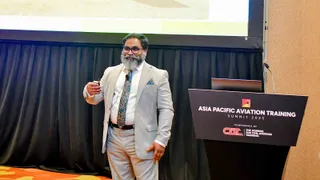Marshall B. Ketchum Univ. Opens New Optometric Simulation Lab
Contact Our Team
For more information about how Halldale can add value to your marketing and promotional campaigns or to discuss event exhibitor and sponsorship opportunities, contact our team to find out more
The Americas -
holly.foster@halldale.com
Rest of World -
jeremy@halldale.com
Marshall B. Ketchum University in Fullerton, California invested in new simulation equipment as the school evolves into an interprofessional institution. Previously offering just optometry education, the school recently added a Physician Assistant program and is in the midst of accreditation reviews for the Pharmacy program it hopes to add this fall.
MBKU purchased two Anatomage Tables for its current Physician Assistant and pending Pharmacy programs and the university’s Southern California College of Optometry opened a simulation lab equipped with VRmagic simulators. The lab is named after Joseph F. Taylor, OD, an alumnus of the Los Angeles College of Optometry whose estate gift helped to fund equipment.
MBKU is developing interprofessional courses in which students from all three of its disciplines will work together on specific case studies using the Anatomage tables during class. Rima Khankan, PhD, assistant professor of neurosciences, plans to use the tables to demonstrate how the spinal pathways connect to the brain and to zoom in on detailed views of neurophysiological structures – especially helpful to optometry students. Future pharmacy students will use the equipment for virtual dissection, as PA students do, during their required year of anatomy courses.
The Taylor Simulation Lab will help students in their first and second years develop essential clinical skills, including direct ophthalmoscopy and binocular indirect ophthalmoscopy, according to SCCO Dean Stanley Woo, OD, MS, MBA. The simulators let students practice ophthalmoscopy exams on virtual patients – giving them more time and access to practice key clinical skills. The school’s faculty is working to integrate the simulators into the curriculum to give students a valuable tool for procedural and diagnostic feedback so they can fine-tune their skills before they perform real-life examinations. Clincal cases are incorporated in a modular approach – increasing in complexity and decision making as competency is developed for each stage.


